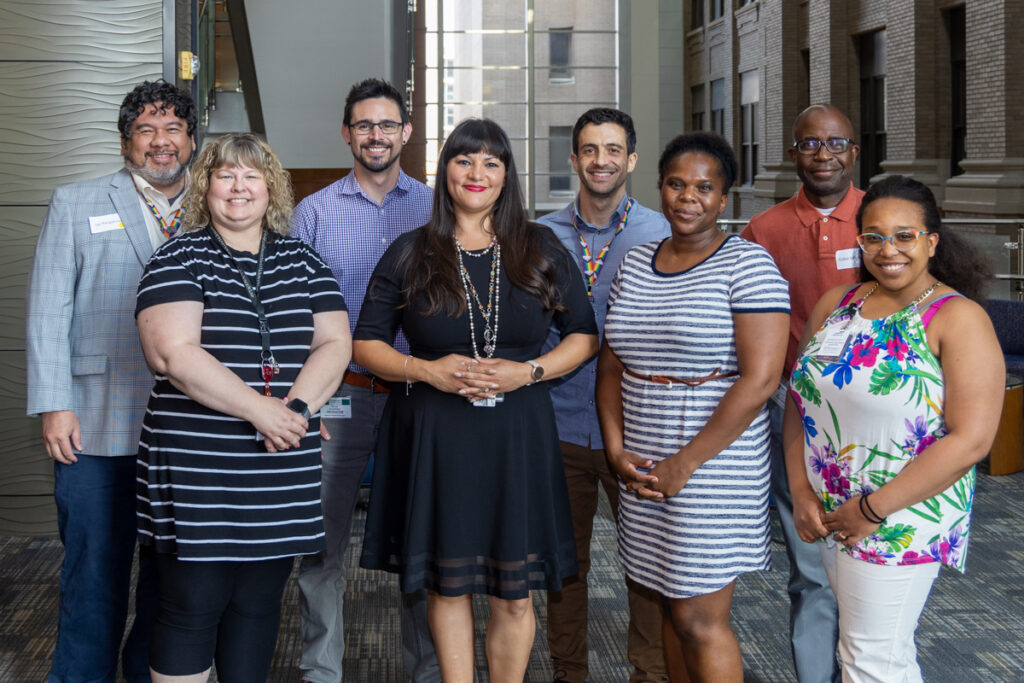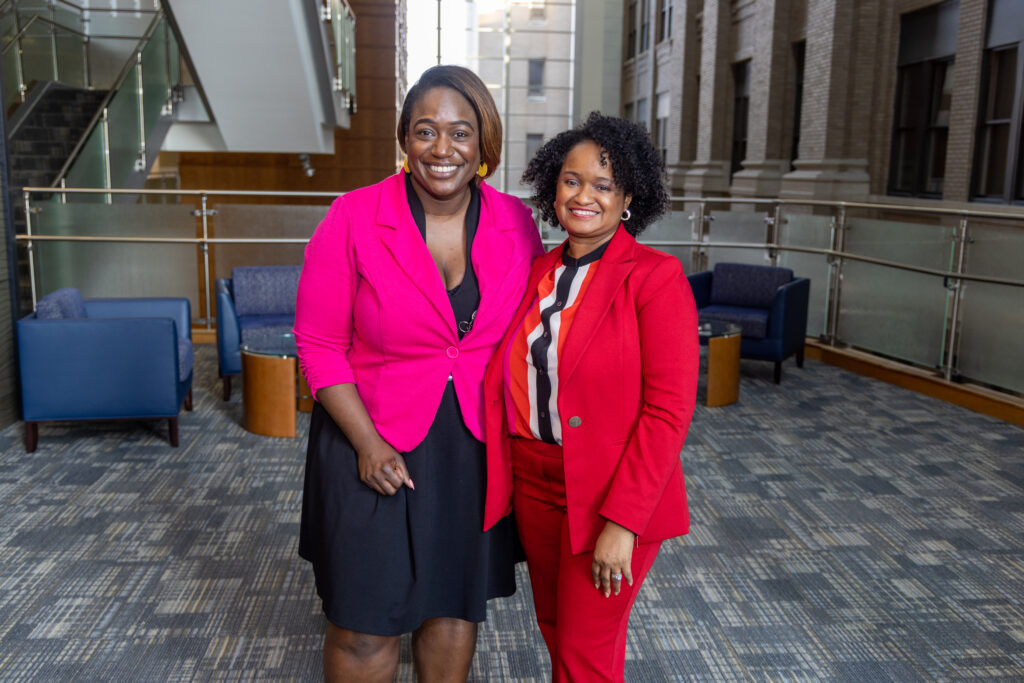Mentorship to Enhance Diversity in Academia (MEDA) is a new program designed to foster and support the careers of trainees who belong to diverse groups. Sponsored by the Department of Medicine’s Office of Inclusion and Diversity, MEDA is open to all within the Washington University School of Medicine community interested in the shared goal of promoting an equitable and inclusive environment for underrepresented minorities in medicine.

MEDA’s innovative mentorship efforts are now underway; the program recently celebrated its kick-off with an inaugural symposium on May 12, 2022.
MEDA’s origin
MEDA’s beginnings developed from a Department of Medicine trainee task force, Trainee Inclusion and Cultural Awareness (TICA) that originally convened in 2016. Comprised of a small group of postdocs and fellows, TICA’ goals were to explore and identify inclusion, diversity, and equity-related concerns and barriers for trainees. Reflecting on her participation as the co-chair of the task force and now MEDA co-director, Jessica Silva-Fisher, PhD, said, “We discussed many things, but it all kept coming back to the issue of mentorship and the lack of programs at the School of Medicine geared to underrepresented trainees and junior faculty. We knew that our recommendations needed to address this void.”
From TICA’s recommendations, the concept for MEDA was developed into the active program it is today, focused on providing academic and career mentorship for diverse trainees. MEDA will work to achieve this mission by facilitating mentorship via two ways: with a unique online mentor connection database and by providing programming related to career development, community, support, and advocacy.
Core to the MEDA program is an online database that allows mentees and mentors to create their own personalized mentorship experience. Mentors interested in participating complete a form and categorize their specialty, interests, and availability, all which is then coded into the database. Mentees can then search for a mentor via a variety of qualifying fields, helping them find the best fit based on their personal career interests, topics, schedule, and mentorship need.
In addition to connecting mentors and mentees online, MEDA plans to offer programming throughout the year to facilitate mentorship connections and educate trainees about available resources.
Inaugural Symposium
MEDA recently kicked off the program with an inaugural symposium and networking event held May 12, 2022. Geared toward potential mentees and interested mentors, this hybrid event included presentations from School of Medicine faculty followed by breakout sessions and time for networking. Featured speakers included Tracey Hermanstyne, PhD, assistant professor, developmental biology and Joyce Balls-Berry, PhD, MPE, associate professor, neurology. Both African American women faculty, Hermanstyne and Balls-Berry shared their personal career experiences and how diversity, mentorship, and community have played key roles during their training and success as academics. During her presentation, Hermanstyne described how a career path should never be linear, everyone’s path is winding. Balls-Berry shared details regarding navigating her personal career journey with a learning disability and being an underrepresented minority in her field.

The featured speakers were followed by small group breakout sessions that covered a variety of mentorship topics. Both Silva-Fisher and Gomez received overwhelming positive feedback from the sessions. They plan to utilize the feedback to help inform and develop future programming.
Looking Ahead
After the success of MEDA’s first symposium, co-directors Felicia Gomez, PhD and Jessica Silva-Fisher, PhD, are looking ahead to the possibilities for MEDA in the future. According to Gomez, “The symposium is just one of hopefully many events where we bring people together from all across the university to talk about the value of mentoring and diversity. Right now, we are doing the hard work of establishing the foundation of a community that we hope will continue to grow because of the people who participate and the opportunities we provide to build networks. It is hard work, but it’s also a lot of fun!”
MEDA’s plans for future programming are underway. Don’t miss their next event, a mentoring coffee hour, “Hot Science Summer – Work/Life Balance during the Summer Months”, June 23rd, 10 a.m., Shell Café.
Interested in learning more about MEDA? Visit the website here and follow MEDA on Twitter, @MEDA_WashU